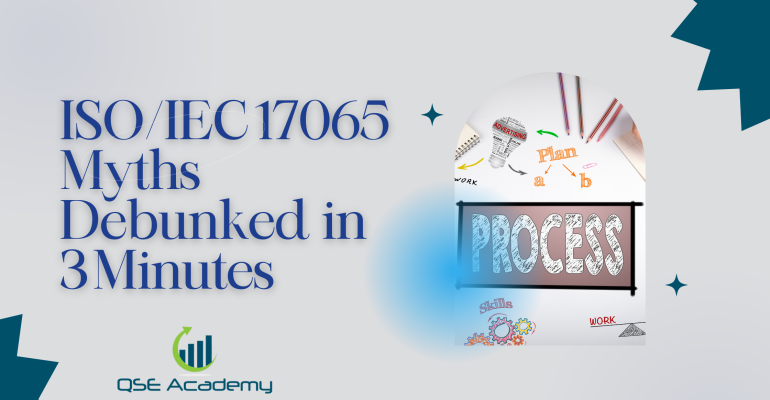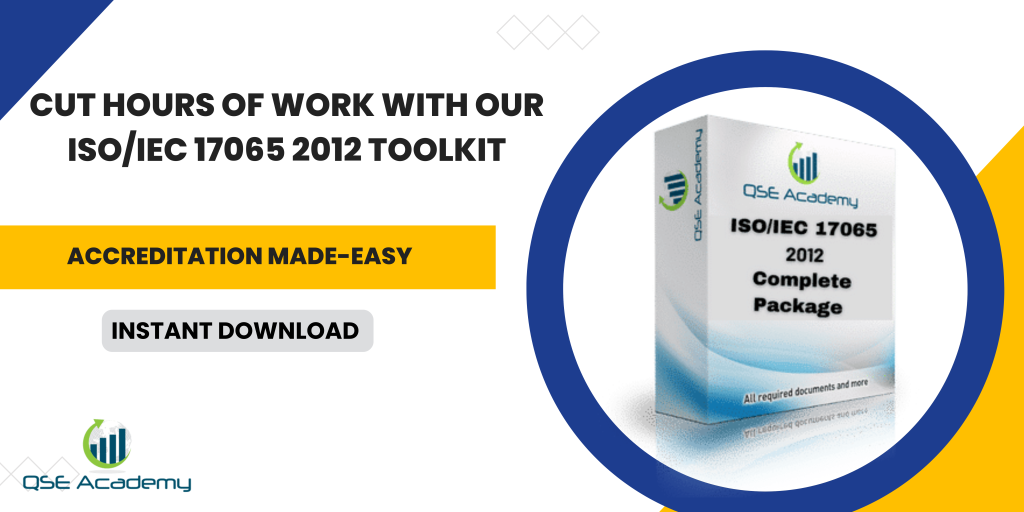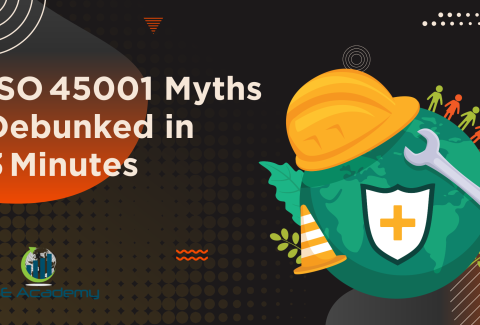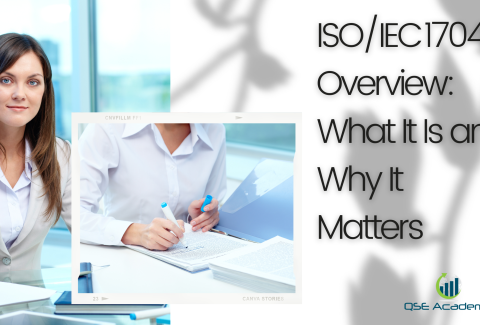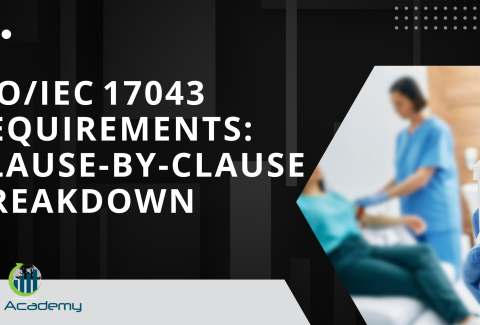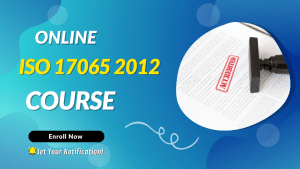ISO/IEC 17065 Myths Debunked in 3 Minutes
Last Updated on December 23, 2025 by Hafsa J.
Why So Many Myths Exist About ISO/IEC 17065
When I ask new clients what they know about ISO/IEC 17065, I usually hear a mix of half-truths and confusion.
Some think it’s only for big companies. Others assume it’s the same as ISO 9001 or ISO/IEC 17021-1.
And a few believe accreditation costs a fortune.
I get it—accreditation feels technical, and the rules can look intimidating at first glance.
But once you strip away the jargon, ISO/IEC 17065 is actually practical and achievable for any serious certification body.
So, let’s set the record straight.
Here are the most common myths I hear about ISO/IEC 17065—and the real truth behind each one.
Myth #1: ISO/IEC 17065 Is Only for Product Certification
This one’s everywhere.
Many people assume 17065 applies only to physical products—like helmets, food, or electronics.
The truth? It also covers services and processes.
If your organization certifies anything based on defined criteria—whether it’s an eco-cleaning service, a recycling process, or a tourism program—ISO/IEC 17065 applies.
Example:
A client of mine certifies hotel services for sustainability compliance. No physical product involved—but they’re 17065-accredited.
Pro Tip: If you issue a certificate that says, “This product/service/process meets defined requirements,” you’re already in ISO/IEC 17065 territory.
 Myth #2: ISO/IEC 17065 and ISO/IEC 17021-1 Are Basically the Same
Myth #2: ISO/IEC 17065 and ISO/IEC 17021-1 Are Basically the Same
They’re cousins, not twins.
Both are part of the ISO CASCO family, but they serve completely different purposes.
- ISO/IEC 17065 covers product, process, and service certification.
- ISO/IEC 17021-1 covers management-system certification—think ISO 9001, ISO 14001, or ISO 45001.
Common mistake:
Some certification bodies try to apply their 17021 audit procedures to product certification. That’s a fast way to fail an accreditation assessment.
Example:
A PPE certifier I worked with was rejected because they used audit forms designed for management-system reviews.
Once they rewrote their evaluation process to meet 17065’s technical-review model, they passed smoothly.
Myth #3: Accreditation Is Too Expensive and Complicated
Here’s what I’ve noticed—most of the “it’s too expensive” talk comes from poor planning, not the accreditation itself.
Yes, there are costs: documentation, training, assessment fees.
But the process is scalable. You can start small and grow your system as your scope expands.
Example:
A small food-label certifier I helped got accredited in six months by adapting their ISO 9001 system and focusing on the essentials. No huge budget, no outside consultants.
Pro Tip: Begin with a gap analysis. It helps you identify what you already meet—and what truly needs building.
Myth #4: ISO/IEC 17065 Is Only for Large Organizations
Not even close.
I’ve worked with certification bodies of every size—from three-person startups to multinational regulators.
ISO/IEC 17065 doesn’t care how big you are. It cares about how consistently and impartially you certify.
Example:
A small organic-farming certifier I coached achieved accreditation with just three staff. Today, they issue certificates accepted by retailers across the EU.
Pro Tip: Use simple, modular documentation templates. You don’t need 200 pages of procedures—just clear, compliant ones.
Myth #5: Accreditation Guarantees Instant Business Growth
Accreditation isn’t a magic sales button—it’s a credibility multiplier.
It won’t bring clients overnight, but it opens the doors you couldn’t access before.
Example:
One certifier doubled its client base, but only after promoting its accredited status and partnering with trade associations. Accreditation gave them the authority; marketing gave them visibility.
Pro Tip: Combine your accreditation milestone with a communication strategy. Announce it, highlight it in proposals, and educate clients on why it matters.
Myth #6: Once You’re Accredited, You’re Done
This one causes more trouble than any other.
Accreditation isn’t a finish line—it’s an ongoing commitment.
ISO/IEC 17065 requires continuous compliance: surveillance audits, impartiality reviews, management reviews, and regular updates to your certification schemes.
Example:
A certification body once lost accreditation—not because of a technical issue, but because they skipped their annual impartiality review.
Pro Tip: Schedule internal reviews every six months. It keeps your team proactive and avoids last-minute panic before surveillance audits.
Quick Recap: The Truth About ISO/IEC 17065
Let’s summarize what we’ve just cleared up:
- ISO/IEC 17065 covers products, processes, and services—not just goods.
- It’s distinct from ISO/IEC 17021-1.
- It’s scalable, affordable, and achievable.
- Accreditation strengthens credibility but doesn’t replace marketing.
- Maintaining it requires consistent oversight.
It’s not as daunting as it looks. Once you understand the framework, it becomes a powerful tool for building trust.
FAQs
Q1: Can startups or small certifiers get ISO/IEC 17065 accredited?
Absolutely. Accreditation is about competence and impartiality, not size. Small certification bodies often benefit the most because it boosts credibility fast.
Q2: Is accreditation recognized internationally?
Yes. Accreditation under ILAC or IAF mutual-recognition arrangements ensures global acceptance of your certificates.
Conclusion: Clarity Builds Confidence
Most myths about ISO/IEC 17065 come from misunderstanding, not reality.
Once you know how it works, accreditation stops being intimidating—and starts being a strategic advantage.
I’ve seen small certifiers turn into trusted international partners simply because they embraced the framework and used it wisely.
If you want to know what’s really true for your organization, download QSE Academy’s “ISO 17065 Myths vs Facts Guide” or book a quick consultation.
You’ll see how achievable accreditation really is—and how fast it can elevate your credibility.
I hold a Master’s degree in Quality Management, and I’ve built my career specializing in the ISO/IEC 17000 series standards, including ISO/IEC 17025, ISO 15189, ISO/IEC 17020, and ISO/IEC 17065. My background includes hands-on experience in accreditation preparation, documentation development, and internal auditing for laboratories and certification bodies. I’ve worked closely with teams in testing, calibration, inspection, and medical laboratories, helping them achieve and maintain compliance with international accreditation requirements. I’ve also received professional training in internal audits for ISO/IEC 17025 and ISO 15189, with practical involvement in managing nonconformities, improving quality systems, and aligning operations with standard requirements. At QSE Academy, I contribute technical content that turns complex accreditation standards into practical, step-by-step guidance for labs and assessors around the world. I’m passionate about supporting quality-driven organizations and making the path to accreditation clear, structured, and achievable.

